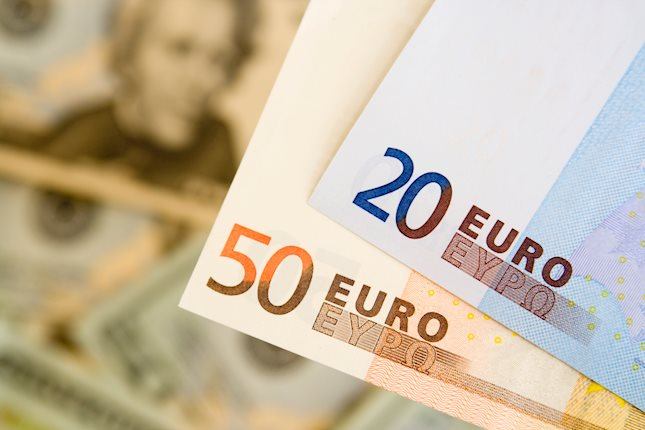Rates
Yesterday, global core bonds put in another solid performance, despite some mixed economic data (strong US Michigan consumer confidence & weaker EMU production). The equity sell-off and an ongoing sharp fall in oil prices, suggests that the global economy may be in serious trouble, triggering a risk off reaction and a flight into the safe, but very expensive, sovereign bonds. The European bear flattening of the yield curve continued, while in the US Treasury market, the belly of the curve slightly outperformed the wings. German yields dropped by 0.9 bps (2-yr) to 8.2 bps (30-yr) with the 10-yr German yield reaching another new all-time low (0.618%). In the US, yield declines varied between 6 bps (2-yr) and 8.4 bps (5-yr).
On intra-EMU bond markets, Greek bonds continued to underperform ahead of the start of the presidential election process next Wednesday. There are risks for a defeat of the government candidate, new parliamentary elections and ultimately a possible victory of the untested left-wing Syriza party. This shakes investors’ confidence. The 10-yr Greek yield spread added 12 bps (+209 bps this week). The Greek credit curve remains inverted, suggesting increased default risks. Greek 3-yr yields trade north of 11% and 10-yr yields above 9%. Contagion to other EMU peripheral bonds is still limited, also taking into account Friday’s 2.5% crash on equity markets: 10-yr yield spreads widened up to 6 bps for Italy, Spain and Portugal on Friday and are 20 to 25 bps higher in a weekly perspective (Portugal 35 bps). Semi-core spreads were nearly unchanged.
The US eco calendar is quite well-filled at the start of the week with industrial production data, the Empire State index and NAHB housing market sentiment. The euro zone eco calendar is empty today, but later on the Dec PMI business sentiment will get a lot of attention. Nevertheless, the main attention this week might go to other issues: the FOMC meeting on Tuesday/Wednesday, the Greek political situation with the start of the presidential election process on Wednesday and the EU summit at the end of the week. Also the relentless slide of the oil price is source of stress with the situation in Russia becoming precarious following the ongoing crash of the Rubble on Friday despite the rate hike (Thursday) and presumed FX interventions. Venezuela is another market eye-catcher as the country may in time face insolvency, as FX reserves are rapidly depleting and are currently only matching the amount of bonds redeeming the next two years. The unexpected fast crash of oil could have nasty effects on other markets too via financial linkages.
Regarding the eco data, after a significant throwback in October, the Empire State index barely recovered in November. Also for December, a quite limited increase is expected, from 10.16 to 12. We believe however that the risks are for an upward surprise. Industrial production, on the contrary, is forecast to show a substantial rebound in November, by 0.7% M/M following a 0.1% M/M decline in October. The headline reading will be supported by strong output of utilities, while also production of motor vehicles and parts should be robust. Although the bar is quite high, we continue to see upside risks. Finally, also the NAHB housing market indicator is forecast to extend its rebound, rising from 58 to 59 in December. Also here, a stronger outcome is likely.
Overnight, most Asian equity markets trade with moderate losses. The Tankan report was a mixed bag and Abe secured a solid two third majority in the lower house (see FX). Japanese equities trade modestly negative and USD/JPY is little changed following a dip lower. The dollar is a tad stronger against the euro. US Treasuries are off early session highs.
Later today, the US eco data are expected strong, ,which is a negative for corer bonds. However, it might not be the main focus of the markets. Risk sentiment on equity markets will be key and driven by oil, Greece, Russia/Ukraine and who knows Spain. Indeed, over the weekend, Vanguardia reported that Spain opened the debate over haircuts on regional debt (details are missing). The search of the Greek PM Samaras to find 17 missing votes to get his presidential candidate elected continues.
Last week, deteriorating equity market sentiment/slide in oil price took the upper hand resulting in safe haven flows. US Treasuries profited as well, despite continued eco data strength and the upcoming FOMC. We think the Fed can drop the “considerable time” phrase (keeping the door for a Summer rate hike open), while leaving the “dots” roughly unchanged.
That combination is a negative for US treasuries. In EMU, the TLTRO outcome was low and together with a weaker growth and the inflation outlook cements chances on more ECB easing. We believe that German yields will stay low at least until the ECB effectively walks the QE talk in January or March.
This non-exhaustive information is based on short-term forecasts for expected developments on the financial markets. KBC Bank cannot guarantee that these forecasts will materialize and cannot be held liable in any way for direct or consequential loss arising from any use of this document or its content. The document is not intended as personalized investment advice and does not constitute a recommendation to buy, sell or hold investments described herein. Although information has been obtained from and is based upon sources KBC believes to be reliable, KBC does not guarantee the accuracy of this information, which may be incomplete or condensed. All opinions and estimates constitute a KBC judgment as of the data of the report and are subject to change without notice.
Recommended Content
Editors’ Picks

EUR/USD holds steady near 1.0400 in quiet trading
EUR/USD continues to fluctuate in a tight channel at around 1.0400 in the European session on Friday. The absence of fundamental drivers and thin trading conditions on the holiday-shortened week make it difficult for the pair to find direction.

GBP/USD declines toward 1.2500 as markets turn cautious
GBP/USD stays under modest bearish pressure and retreats toward 1.2500 on Friday after posting small losses on Thursday. The cautious market mood doesn't allow the pair to gain traction, while trading volumes remain low following the Christmas break.

Gold struggles to build on weekly gains, holds above $2,620
Gold enters a consolidation phase and trades below $2,630 on Friday after closing in positive territory on Thursday. The risk-averse market atmosphere helps XAU/USD limit its losses as investors refrain from taking large positions heading into the end of the holiday-shortened week.

Bitcoin misses Santa rally even as on-chain metrics show signs of price recovery
Bitcoin (BTC) price hovers around $97,000 on Friday, erasing most of the gains from earlier this week, as the largest cryptocurrency missed the so-called Santa Claus rally, the increase in prices prior to and immediately following Christmas Day.

2025 outlook: What is next for developed economies and currencies?
As the door closes in 2024, and while the year feels like it has passed in the blink of an eye, a lot has happened. If I had to summarise it all in four words, it would be: ‘a year of surprises’.

Best Forex Brokers with Low Spreads
VERIFIED Low spreads are crucial for reducing trading costs. Explore top Forex brokers offering competitive spreads and high leverage. Compare options for EUR/USD, GBP/USD, USD/JPY, and Gold.